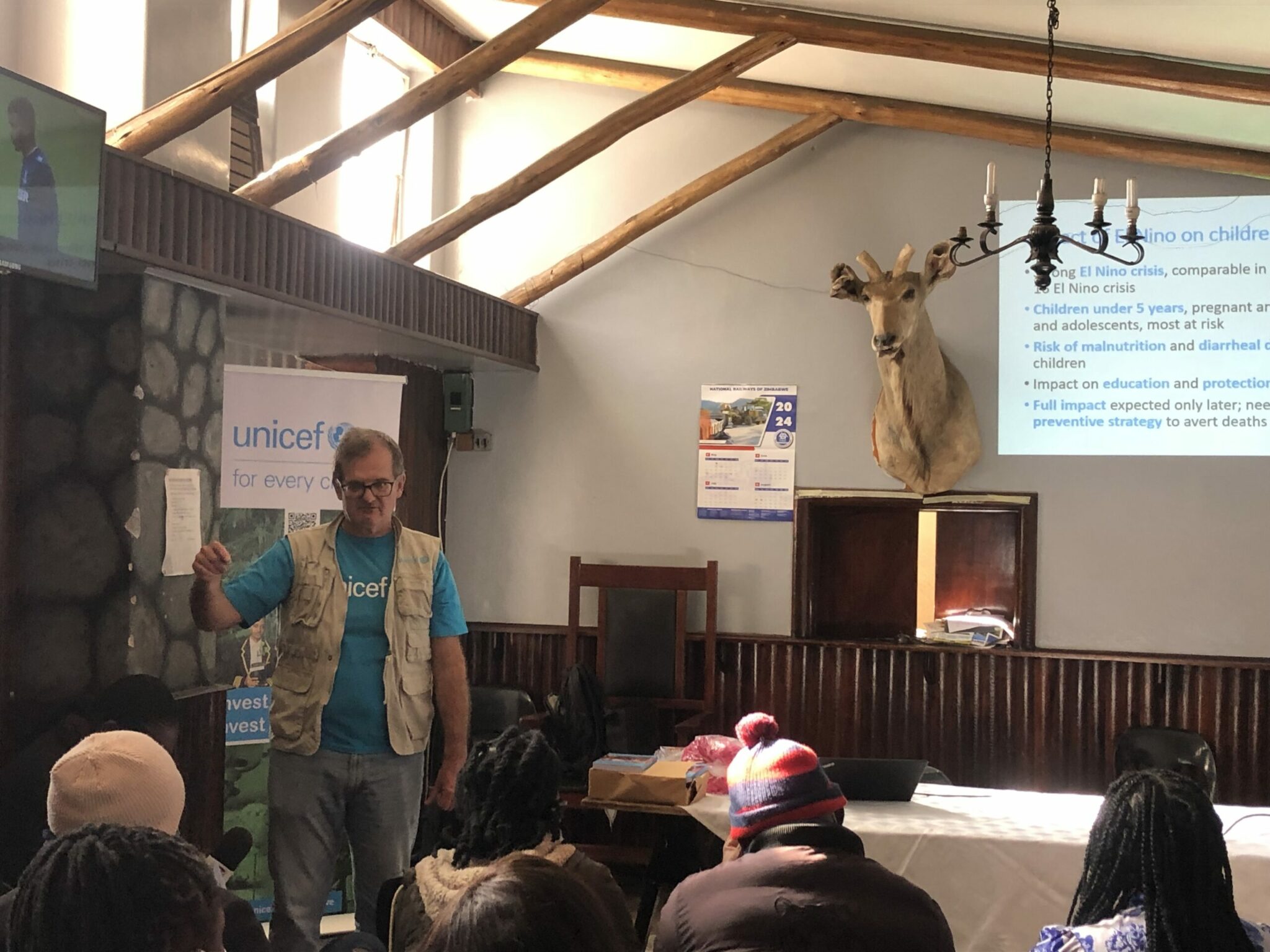BY NDUMISO TSHUMA
The United Nations Children’s Fund (UNICEF) has raised concern about the critical impact of climate change on children, particularly in vulnerable communities facing the ongoing El Niño drought in Zimbabwe.
Chief of Communications Yves Willemot stressed that climate change isn’t just an environmental issue, but a child rights crisis affecting children’s health and well-being.
Addressing journalists in Bulawayo on Tuesday, Willemot highlighted the need for $84.9 million to address challenges posed by El Niño. He called on donors to generously support ongoing efforts to protect children from the drought’s adverse effects.
Willemot said there is an urgent need to increase investments in child-centred climate initiatives. He pointed to Zimbabwe’s high-risk ranking in UNICEF’s Children’s Climate Risk Index, underlining the need to mitigate climate change’s impact on vulnerable populations.
“We need more financial resources,” Willemot said. “UNICEF has recently requested US$84.9 million to address these challenges. We call on donors to respond generously. Our programs are currently funded by internal resources and the United Nations Emergency Relief Fund, but the donor community needs to come forward urgently to scale up programs and protect children from the drought’s consequences.”
Willemot highlighted the threat of malnutrition among children due to limited access to food and water caused by the El Niño drought.
“Climate change disproportionately affects children,” Willemot explained. “The El Niño drought challenges households’ access to food and water, potentially increasing malnutrition. While rates haven’t risen yet, investing in prevention is crucial. We need to continue with community-based initiatives like care groups that teach mothers good feeding practices to prevent malnutrition.”
Willemot further emphasised the need for scaling up climate-resilient programs.
“There’s an urgent need to increase child-centered climate investments to reduce the risk of climate shocks on children,” Willemot said. “We need to establish scaled-up climate-resilient programs to ensure children’s continued access to health, education, water and sanitation services, nutrition, and child protection services during climate crises. Strengthening household resilience is also crucial for dealing with climate emergencies.”
Willemot also said that children must be placed the forefront of climate change policies. UNICEF’s campaign “Invest in Climate, Invest in Children” aims to empower children to champion sustainable practices and ensure their access to resilient services in the face of climate challenges.
“UNICEF’s ‘Invest in Climate, Invest in Children’ campaign aims to put children at the centre of climate change policies and budgets,” Willemot said. “It’s vital to empower children to be environmental stewards and enable their participation in the climate agenda. We must also ensure children have access to resilient services.”

